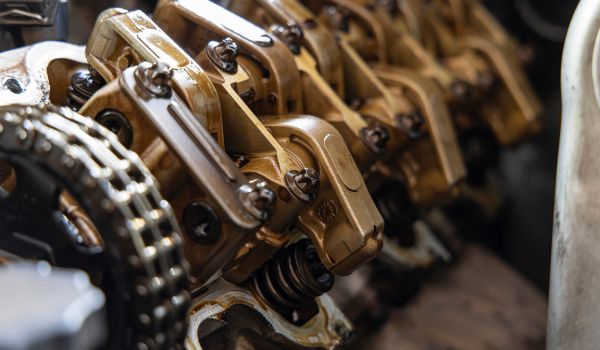Head Gasket problems are not small things. But the question is how to find a head gasket leak and fix it? If you don’t fix a head gasket break, it can lead to big problems with your car’s engine over time. A gasket oil leak is one of the worst things that can happen when the head gasket leaks. Unfortunately, this is not a good situation. Car owners and drivers should know how to fix a head gasket break before it gets worse.
We will talk about head gasket leak and how it differs from a blown one. A range of head gasket sealants that start at just $15. This is a much better use of money since a regular head gasket repair at a shop can cost over $2,000, not counting the cost of the car not running and having to find other ways to get to work.
WHAT IS A HEAD GASKET LEAK?
A leak in head gasket is the leak of things from the engine block into places the bay. Many channels in an engine block carry coolant, engine oil, and cylinders, which are where the fuel and air meet. Usually, you don’t want oil or water to leak into the cylinders. The head gasket helps keep the cylinders separate.
But head gaskets breaks down over time as they expose to high and low temperatures and pressures. This could cause a head gasket leak that, if not fixed, will cause the head gasket to fail. The causes much damage, requiring pricey repairs and much time spent without the vehicle.
WHAT IS THE DIFFERENCE BETWEEN A BLOWN AND LEAKED HEAD GASKET?
A leaked head gasket will blow anytime. Head gaskets usually blows when the engine is over turbocharged or supercharged from aftermarket tuning.
A car can be driven for a while with a leaky head gasket, but not with a blown one because the engine might need to make enough compression, and oil and water would leak everywhere. If you try to drive a car with a blown head gasket, the stressed engine will suffer much damage. It could overheat and stop up, or the pistons could damage the engine block by trying to squeeze liquids that can’t be compressed, like coolant.
Broken head gasket have head gasket repair products that will give it extra life. Either the owner or the driver can use these products. On the other hand, a broken head gasket is not repairable. The only way to fix it is to replace the head gasket completely, which means going to the shop and paying hundreds of dollars for parts and labor.
WHAT TO DO IF YOUR HEAD GASKET LEAKS
There are a lot of ways to fix a bad head gasket. There may not be an error code or the Check Engine Light (CEL) coming on because of a leaking head gasket. Here are some of the leaky head gasket symptoms.
- Is the engine uses more oil than usual? If your car is using oil even after you’ve changed the oil, there might be a leak somewhere in the head gasket. This oil can leak into the engine and catch fire, even if no oil leak can be seen.
- Usually, car exhaust has no color. But if you have signs of a leaky head gasket, coolant or oil can get into the cylinders and burn, giving the exhaust a color tint. If the smoke from the tailpipe is white, it means there is a leak of coolant. If it is blue, it means the engine oil is on fire.
- Is the engine getting too hot? A poorly sealed head gasket can leak the coolant out. This lowers the pressure of the coolant in the system, making it less effective.
- Is there an oil or water leak on the engine’s head that you can see? Modern cars have engine covers that improve the view when the hood is opened, but these covers are quickly removed to see the engine and gears and do a visual check.
- What kind of rough or shaky running does the engine have? Does the spark plugs clogs in oil? If they are, it means the head seal is likely leaking.
When changing the oil, pay attention to how the oil is doing if the oil looks milky or has a coolant tint, a leak in the head gasket lets the oil and coolant mix.
A guide on how to fix a head gasket leak
Repairing a head gasket break can be surprisingly easy. A responsible owner or driver who knows much about cars can use a head gasket sealant. However, they should first ensure that the symptoms listed in the previous part are caused by a leaky head gasket and not a leak in the cooling system. Head gasket sealants are usually put in through the cooling system, which must be cleaned to eliminate debris.
After the radiator and cooling system are flushed, water is added to the radiator, and the right amount of sealant is added based on the number of cylinders in the engine. The engine must also be appropriately warmed up to get the best results from the sealant. If you use the head gasket sealer the right way, your head gasket will last for many thousands of miles.
A replacement of the head gasket is the other fix option. That usually takes about 10 hours of work, or even more if you do it yourself, and parts that cost hundreds of dollars. The top end is taken off before putting the engine back together, the surfaces are cleaned and prepared, and the new seal is put in. Replacement of a head gasket can cost anywhere from $1,500 to over $1,500, based on the type of car you drive.








